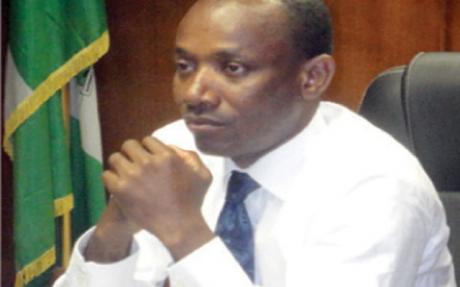Despite the fact that the Federal Government provided N224bn in electricity subsidy between 2008 and 2012, it has had very little impact on the sector.
Investigations have revealed that this is due to not following the rules of the electricity market in the disbursement of the subsidy. This, combined with the lack of a solid framework, has been unable to block the money leaking into private pockets, making nonsense of the laudable intentions of government.
An informed source said rather than subsidy disbursement being based upon the collection efficiency of operators, it is being based on political considerations.
He stressed that the electricity market could do better than it was doing now if properly managed in such a way that expenditure was controlled and leakages of funds into private pockets blocked.
“The market should not be bureaucratised and the use political consideration to allocate subsidy is moral hazard because it will create a negative incentive for those who are collecting revenue to also seek bailout,” he said.
The Federal Government had approved N178bn in 2008 as electricity subsidy for the next three years and another N46bn in 2012. Despite these monies, there still exist about N200 billion worth of unpaid purchased power bills owed to market participants, such as Agip which is owed N16 billion for gas, while an estimated N106 billion is needed to close the existing metering gap.
The electricity subsidy money is supposed to be used to pay for costs of power, capacity expansion and maintenance of the distribution networks, but despite the allocation, the distribution networks are still weak and can hardly evacuate more than 5,000 megawatts of electricity.
The source explained that rather than manage the electricity market as a ‘market’, it is being managed like an industry where everyone earns the same salary even when certain distribution companies (Discos) are operating at a loss, collecting low revenue and owing hugely for gas.
He noted that policing the financial aspect of the market was critical to enabling government know if the operators were using the revenue adequately to finance their obligations in the market.
The source said: “Although I have no facts that the money has been stolen, but the money is supposed to be released based on performance – which is not the case. It is wrong for a Disco which claims to have collected zero revenue, which even owes for gas, to receive full subsidy. There is a deep misalignment here.
“Some claim they are not selling any power, not collecting money and collecting subsidy money while other Discos are struggling to collect the revenue. We need to create more discipline in the market and put more spotlight on the expenditure of the Discos. There needs to be a proper accounting framework.
“If we can have a hold on how much goes in and comes out, we would be able know exactly where the fault is; because knowing Nigeria, it’s fair to assume that some of the money is going into places where they should not go and some people are under-reporting their performance. If money received is being diverted, there will be no power reliability no matter how much generation we have.”
He said this was causing the Discos to be able to get away with inefficiency in revenue collection, since revenue or not, it would collect subsidy to pay salaries. He went on to warn that if indebtedness is not controlled, it will keep increasing and it will eventually be taken over by Nigerian Electricity Liability Management Company (NELMCO) when the new owners come.
“The proceeds from the consumer can take care of most of the cost of supplying electricity “if we control the expenditure in the market and improve the receivables by closing out every way that those funds can be diverted into private pockets.
“The metering gap has prevented government from knowing exactly what the Discos are collecting, insisting that “we need to know what the collections are and whether the revenue is used to run the market in line with the requirement,” he said.
The subsidy money is paid by the market operator, while the Nigeria Electricity Regulatory Commission (NERC) and the Ministry of Power have reserved rights to audit the market operator for any act of irregularities.

